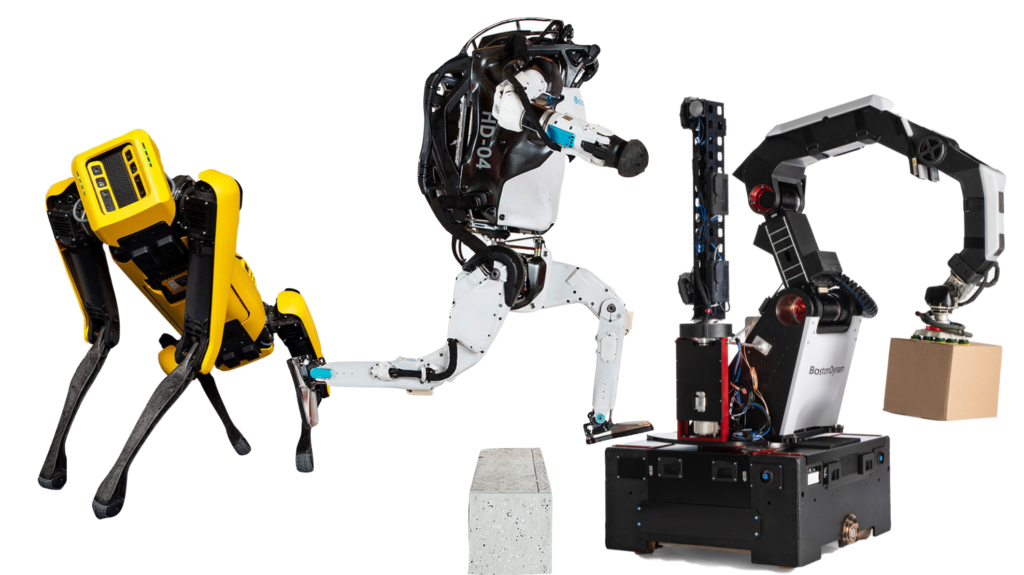|
You can also listen to the article here:
|

Boston Dynamics, which is known for its humanioid Atlas robot and four-legged Spot (available to order online for $74,500) has launched Stretch – a practical warehouse operations robot.
Stretch can lift 800 cases an hour and items up to 23 kilograms (50 lbs), a throughput rate that’s comparable to that of a human (batteries last for 8 hours). Unloading trucks, building pallets and orders – the key innovation is that Stretch is mobile and can roam around on its own, eliminating the need for fixed infrastructure.
It is a sizable market as around 80 percent of the world’s warehouses don’t have any automation equipment. Amazon increased warehouse sq footage by 50% and added more than 425,000 workers, while Walmart hired 400,000 new associates just in the last 10 months. Investors believe there’s an opportunity for warehouse automation as in the last month:
- ForwardX (a Chinese visual autonomous robotics company) closed series B with $63M,
- Nimble Robotics (Stanford & Carnegie Mellon spin-off) picking, packing, sorting robots raised $50M series A,
- Ambi Robotics (founded by UCI Berkley professor) adaptable AI robots raised a $6.1M seed round,
- Pickle (MIT spin-off) raised $5.75M round and claimed that their robot can do 1,600 picks per hour, 2x more than any other competitor.
In addition to warehouses, there are many areas where mobile robots are being actively tested and deployed to enhance human capabilities, including construction work (Skycatch drones), manufacturing (Dusty), farming (Burro), law enforcement (NYPD). For consumers, many metropolises have seen the influx of delivery robots (Starship, Nuro, Eliport, Cartken, Amazon Scout, Postmates Serve).
Interesting to note that, as with many technologies (including the internet itself), robotics got an early start and adoption with the military. Boston Dynamics was an MIT spin-off company to serve government military efforts, then acquired by Google X, sold to Softbank, and since Dec 2020 it has been majority-owned by Hyundai. War (whether physical or medical) still seems to be the ultimate incentive to invest and drive forward the adoption of new technologies.